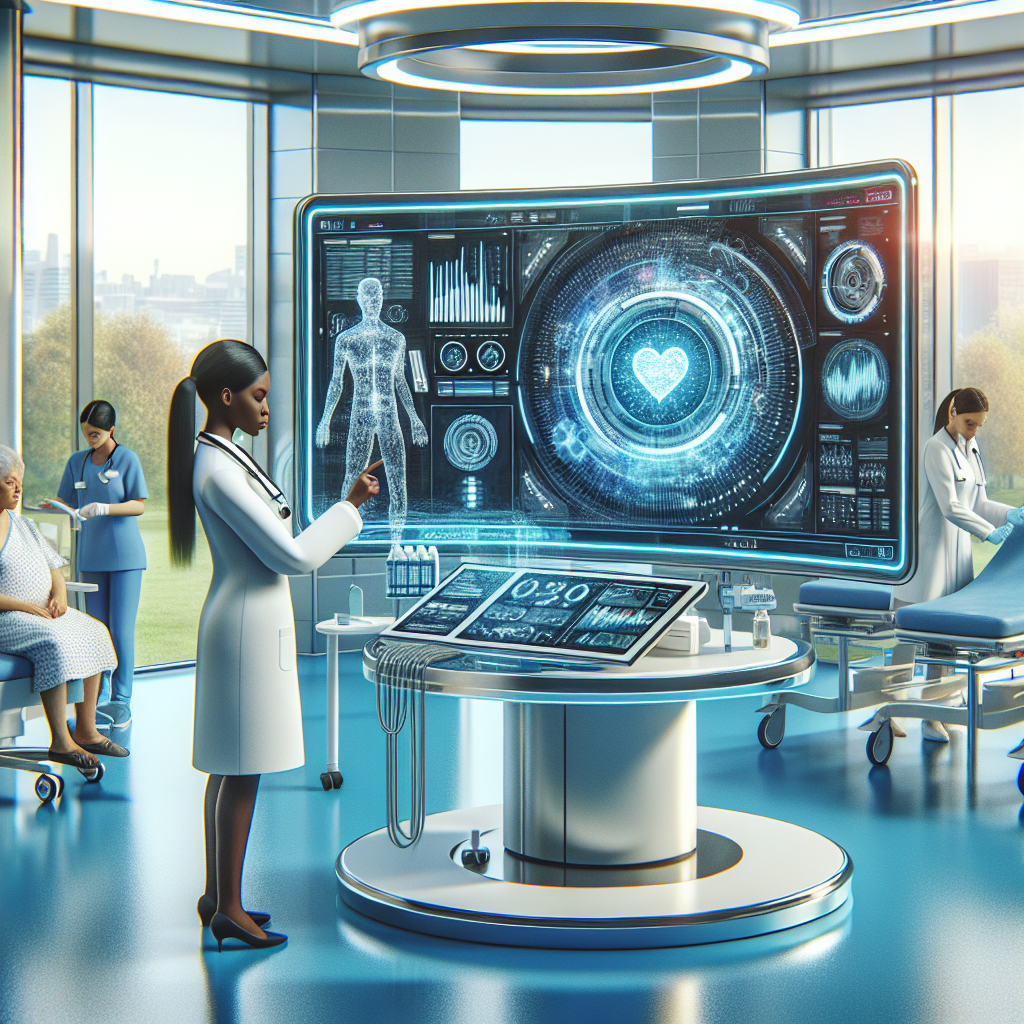Artificial Intelligence (AI) has been revolutionizing various industries, and healthcare is no exception. The rise of AI in healthcare has brought about significant advancements in diagnosis, treatment, and patient care. From personalized medicine to robotic surgeries, AI is transforming the way healthcare is delivered and improving patient outcomes. In this article, we will explore the various applications of AI in healthcare and its potential impact on the industry.
Applications of AI in Healthcare
1. Diagnosis and Imaging: AI algorithms can analyze medical images such as X-rays, MRIs, and CT scans to assist radiologists in detecting abnormalities and making accurate diagnoses. These algorithms can help identify patterns and anomalies that may be missed by human eyes, leading to earlier detection of diseases and better treatment outcomes.
2. Personalized Medicine: AI can analyze large amounts of patient data, including genetic information, medical history, and lifestyle factors, to tailor treatment plans to individual patients. This approach, known as precision medicine, allows healthcare providers to deliver more targeted and effective treatments, reducing adverse reactions and improving patient outcomes.
3. Drug Discovery: AI is being used to accelerate the drug discovery process by analyzing vast amounts of data to identify potential drug candidates and predict their efficacy. This has the potential to significantly reduce the time and cost involved in bringing new drugs to market, ultimately benefiting patients by providing them with more effective treatments.
4. Remote Monitoring and Telemedicine: AI-powered devices and algorithms can monitor patients remotely, collecting vital signs and other health data in real-time. This enables healthcare providers to track patients’ progress, intervene early in case of deterioration, and provide timely interventions, especially for patients in remote or underserved areas.
5. Robotic Surgery: AI-powered robots can assist surgeons in performing complex surgical procedures with greater precision and accuracy. These robots can analyze real-time data, adjust movements accordingly, and even perform surgeries autonomously, reducing the risk of human error and improving patient outcomes.
6. Virtual Health Assistants: AI-powered chatbots and virtual health assistants can provide patients with personalized health advice, answer medical queries, and schedule appointments. These assistants can improve patient engagement, provide timely support, and alleviate the burden on healthcare providers, especially in busy healthcare settings.
Impact of AI in Healthcare
The rise of AI in healthcare has the potential to revolutionize the industry in several ways:
1. Improved Diagnosis and Treatment: AI algorithms can analyze vast amounts of data and identify patterns that may not be apparent to human clinicians. This can lead to earlier detection of diseases, more accurate diagnoses, and personalized treatment plans tailored to individual patients.
2. Enhanced Patient Care: AI-powered devices and algorithms can monitor patients remotely, track their progress, and provide timely interventions, improving patient outcomes and reducing hospital readmissions. Virtual health assistants can also enhance patient engagement and satisfaction by providing personalized support and guidance.
3. Increased Efficiency: AI can automate routine tasks, streamline administrative processes, and optimize resource allocation, allowing healthcare providers to focus on patient care. This can lead to cost savings, improved operational efficiency, and better utilization of healthcare resources.
4. Accelerated Drug Discovery: AI can analyze vast amounts of data to identify potential drug candidates, predict their efficacy, and optimize drug development processes. This can significantly reduce the time and cost involved in bringing new drugs to market, benefiting both patients and pharmaceutical companies.
5. Ethical and Regulatory Challenges: The rise of AI in healthcare raises ethical and regulatory challenges related to data privacy, patient consent, algorithm bias, and accountability. Healthcare providers and policymakers must address these challenges to ensure the responsible and ethical use of AI in healthcare.
FAQs
Q: What are the potential risks and challenges associated with the rise of AI in healthcare?
A: The rise of AI in healthcare presents several risks and challenges, including data privacy concerns, algorithm bias, regulatory compliance, and ethical implications. Healthcare providers must address these issues to ensure the responsible and ethical use of AI in healthcare.
Q: How can healthcare providers ensure the responsible use of AI in patient care?
A: Healthcare providers can ensure the responsible use of AI in patient care by implementing robust data privacy and security measures, conducting regular audits of AI algorithms, addressing algorithm bias, and promoting transparency and accountability in AI-powered systems.
Q: What are some examples of successful applications of AI in healthcare?
A: Some successful applications of AI in healthcare include AI-powered diagnosis and imaging tools, personalized medicine algorithms, remote monitoring devices, robotic surgery systems, and virtual health assistants. These applications have the potential to improve patient outcomes, enhance patient care, and streamline healthcare delivery processes.
Q: How can patients benefit from the rise of AI in healthcare?
A: Patients can benefit from the rise of AI in healthcare through earlier detection of diseases, more accurate diagnoses, personalized treatment plans, remote monitoring and telemedicine services, and enhanced patient engagement. AI-powered systems can improve patient outcomes, reduce hospital readmissions, and provide patients with timely and personalized support.
In conclusion, the rise of AI in healthcare is transforming the industry by improving diagnosis, treatment, patient care, and operational efficiency. From personalized medicine to robotic surgeries, AI is revolutionizing the way healthcare is delivered and benefiting patients, healthcare providers, and pharmaceutical companies alike. However, healthcare providers must address ethical, regulatory, and data privacy concerns to ensure the responsible and ethical use of AI in healthcare. With continued advancements in AI technology and collaboration between stakeholders, the future of healthcare looks promising and innovative.

